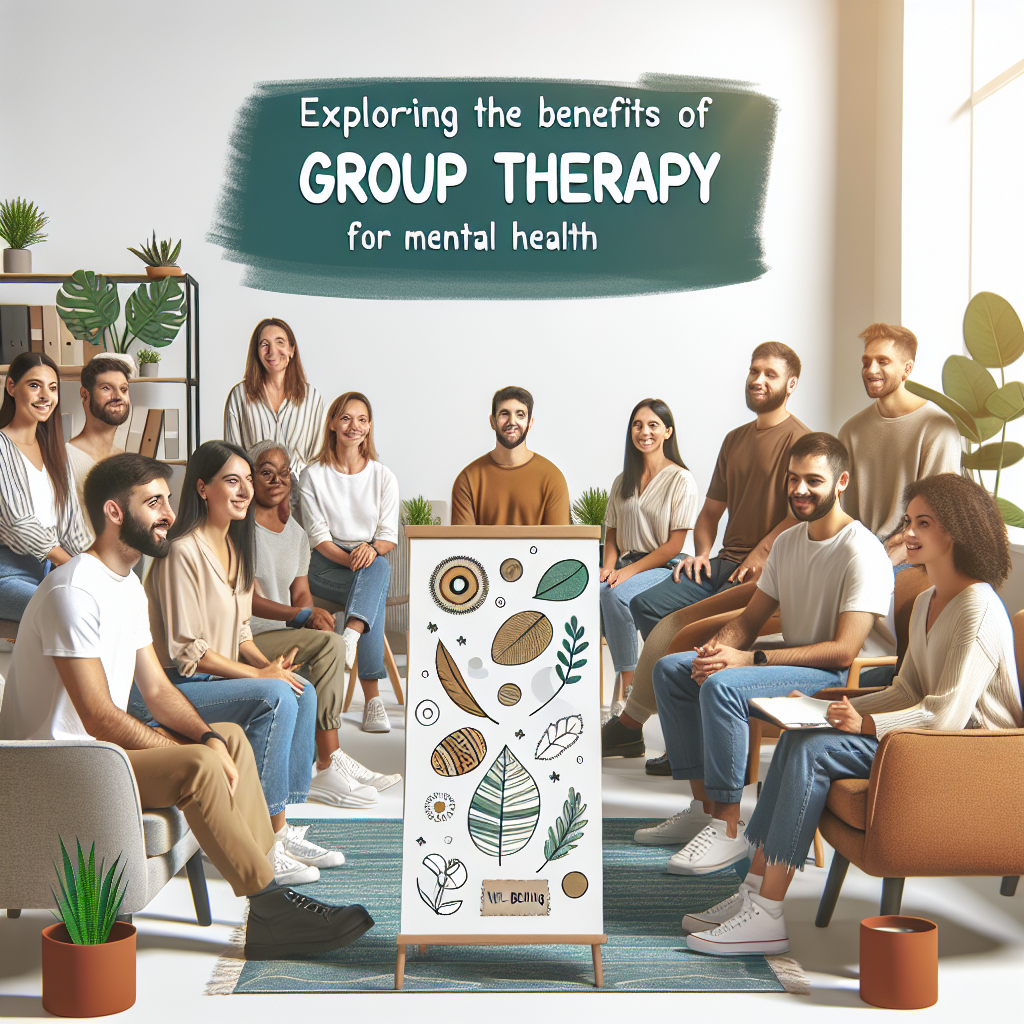Group therapy is a form of psychological treatment that involves a therapist working with several clients at the same time. This type of therapy can be extremely beneficial for individuals struggling with mental health issues, as it allows them to connect with others who are going through similar struggles. In this article, we will explore the benefits of group therapy for mental health and well-being.
One of the key benefits of group therapy is the sense of community and support that it provides. When individuals are able to connect with others who understand their struggles, they can feel less alone and more understood. This can help to reduce feelings of isolation and increase feelings of belonging and acceptance. In a group therapy setting, clients are able to share their experiences, thoughts, and feelings in a safe and supportive environment.
Group therapy also offers a unique opportunity for individuals to learn from others who are going through similar experiences. By hearing the stories and perspectives of others in the group, clients can gain new insights and perspectives on their own struggles. This can help to increase self-awareness and promote personal growth and development. Additionally, group therapy can provide a sense of validation and validation, as clients realize that they are not alone in their struggles.
Another benefit of group therapy is the opportunity for interpersonal growth and development. In a group setting, clients have the chance to practice social skills, communication skills, and conflict resolution skills. They can also receive feedback and support from others in the group, which can help them to improve their relationships both inside and outside of therapy. Group therapy can also provide a sense of accountability, as clients are encouraged to set goals and work towards them with the support of the group.
Group therapy can also be more cost-effective than individual therapy, as the therapist’s time is divided among several clients. This can make therapy more accessible to individuals who may not be able to afford individual sessions. Additionally, group therapy can be more time-efficient, as clients can benefit from the support and insight of others in a shorter amount of time.
In addition to these benefits, group therapy has been shown to be effective in treating a wide range of mental health issues, including depression, anxiety, PTSD, addiction, and eating disorders. Research has shown that group therapy can be just as effective as individual therapy in treating these and other mental health issues. Group therapy can also help to improve self-esteem, reduce symptoms of stress, and increase overall well-being.
In conclusion, group therapy can be a valuable and effective form of treatment for individuals struggling with mental health issues. The sense of community, support, and understanding that group therapy provides can help to reduce feelings of isolation and increase feelings of belonging and acceptance. Group therapy also offers the opportunity for interpersonal growth and development, as clients learn from others who are going through similar experiences. Group therapy can be more cost-effective and time-efficient than individual therapy, and has been shown to be effective in treating a wide range of mental health issues.
FAQs:
Q: How many people are typically in a group therapy session?
A: Group therapy sessions usually consist of around 6-12 clients, along with one or more therapists.
Q: How long do group therapy sessions typically last?
A: Group therapy sessions typically last around 60-90 minutes, depending on the specific therapy program.
Q: How often do group therapy sessions typically meet?
A: Group therapy sessions usually meet once a week, although some programs may meet more or less frequently.
Q: Will I be required to share my personal experiences in group therapy?
A: Sharing personal experiences in group therapy is encouraged but not required. Clients can share as much or as little as they feel comfortable with.
Q: How can I find a group therapy program in my area?
A: Your therapist or mental health provider can help you find a group therapy program in your area. You can also search online or contact local mental health organizations for recommendations.




Leave A Comment